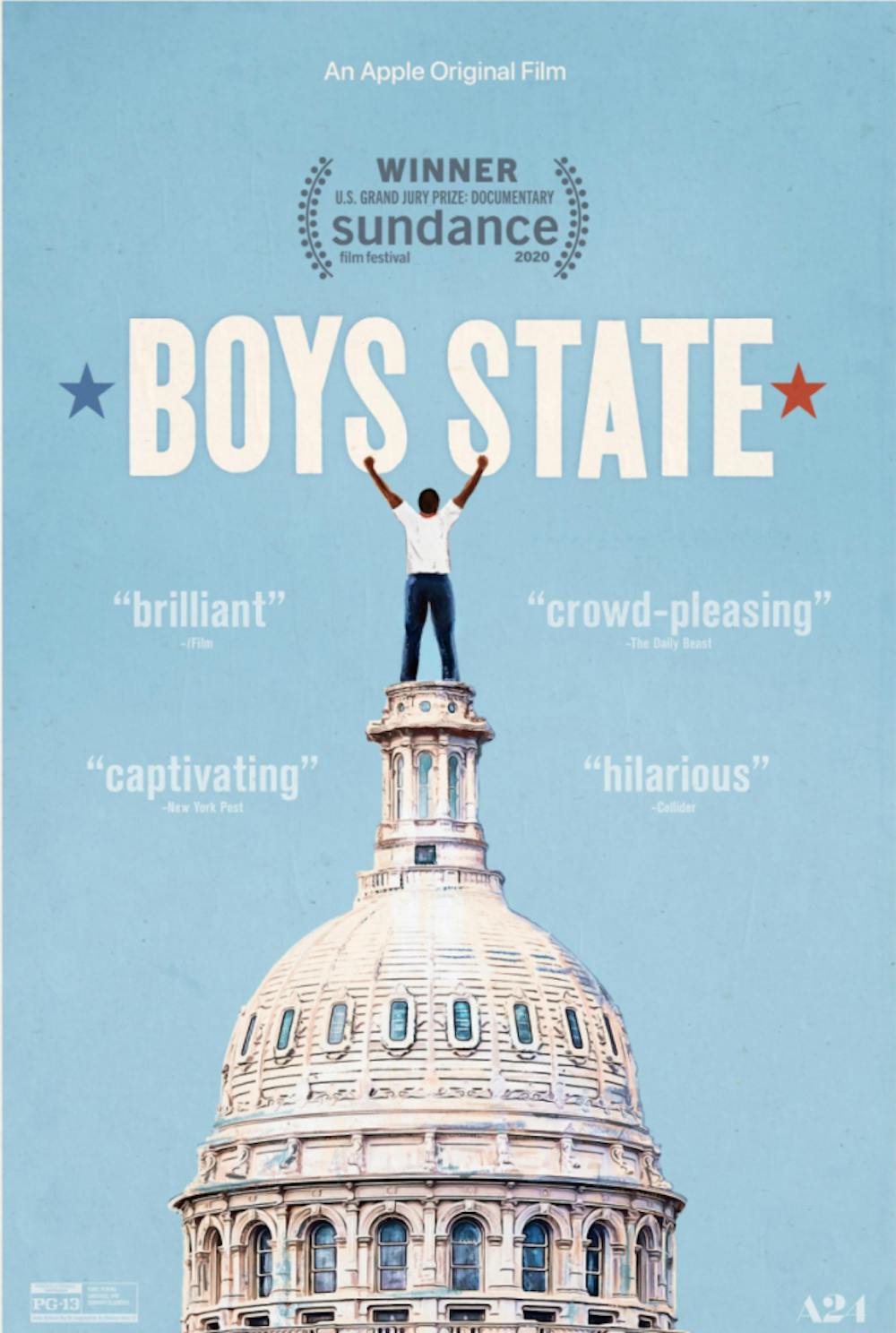Light drifts over a sea of bright faces, red lanyards and white shirts; you can hear the clash of cymbals, a snare and “Hey Baby” by DJ Otzi. It’s hectic, clamorous but riveting. Everyone wants their voice to be heard. Amid it all, the camera pans to follow gubernatorial finalist Steven Garza walking towards a crowded stage, as if on the way to a boxing match.
This is “Boys State.”
The first feature of this fall’s Hirschfield International Film Series, “Boys State” is directed by filmmaking couple Amanda McBaine and Jesse Moss. McBaine and Moss bring us a punchy, witty and immersive account of a week-long teenage mock political campaign in Texas — territory I wouldn’t expect to enter.
The film opens with introductions of its four central characters, Steven Garza, Ben Feindstein, Robert MacDougall and René Otero, each in their homes just days before the conference begins. The ensemble is a diverse group, with each boy coming forth with a different reason why he wants to serve as governor. Highlighting characters of diverse backgrounds like Steven, whose parents immigrated from Mexico, and Ben, who lives with physical disabilities, “Boys State” shines a light on the wide range of students who flock to the summer conference in hopes of being crowned Boys State governor. With a small feature on each competitor, the film frames the boys almost as caricatured versions of themselves. During their introductions, the boys’ names flash in all caps on the screen, as if each name were a chapter title in a book.
A comical score jumps in and out, and violin pizzicatos punctuate the film’s tongue-in-cheek humor whenever a boy comes on stage to give a speech. We live in a dramatic world, and “Boys State” makes note of that — but this isn’t to say that the candidates are not serious. Silence is effective, and noise is hushed to draw the audience’s attention back to the speaker. Lights illuminate their profiles; their faces are honest.
Frankly, it’s incredibly fun to see how Moss and McBaine communicate the sense of adolescence in this film. It’s not a standard, monochromatic tableau of old white men in politics — this is a different, diverse pool of boys. Boys still in their formative years. Boys rife with strong opinions, trying to navigate politics. Boys who can be petty with each other. Boys who get into deep arguments, learning to weigh political competition with personal moral values. We see this in the dispersion of interviews, turbulent camera pans, audible gulps and the raucous teenage uproar after a divisive speech. Hell, I even commend “Boys State” for capturing meme culture on campaign Instagram pages as leaders engage in political warfare.
While adolescence is excellently portrayed in the film, I’m left feeling like the foci within the program are skewed. When a meme page perpetuated racist rhetoric against René, the Nationalist Party Chair, the documentary almost glossed over it. Even at their young age, the boys succumb to foul play campaign tactics. “Boys State” could have captured the essence of the moment but missed the opportunity to examine its very real-world import. Instead, the annual event is framed as one conducted in a vacuum, where political candidates regularly assure the audience in interviews that they’re just “playing the politics game.”
But even if it’s “just a game” for some, it’s personal too. On one hand, we have Robert MacDougall, a Nationalist gubernatorial hopeful who claims on stage that he’s anti-abortion and pro-choice. On the other, we have René, the Nationalist Party Chair, who comes face-to-face with racism throughout the event, a struggle beyond the “political game” the other boys are playing.
In the choice of glossing over some deeper issues, “Boys State” does its job at documenting teen politics, but could be so much more.
Inevitably, there also comes the question, “what about Girls State?” Sure, the group in Boys State was diverse, but when you have teenage boys debating subjects like abortion, the idea comes to mind. Do we get a complementary Girls State movie? Will people comment on the inherent exclusivity of these events, the exclusion of nonbinary individuals or the mental health effects of that heated atmosphere? The film has some shots of homogeneous crowds and some clever editing, but critical commentary is superseded by the program's portrayal as educational and inspiring.
All things aside, I thought the film was a great time. It’s punchy. But if I had one comment? You may get upset.
Reel Critic: ‘Boys State’

Comments



